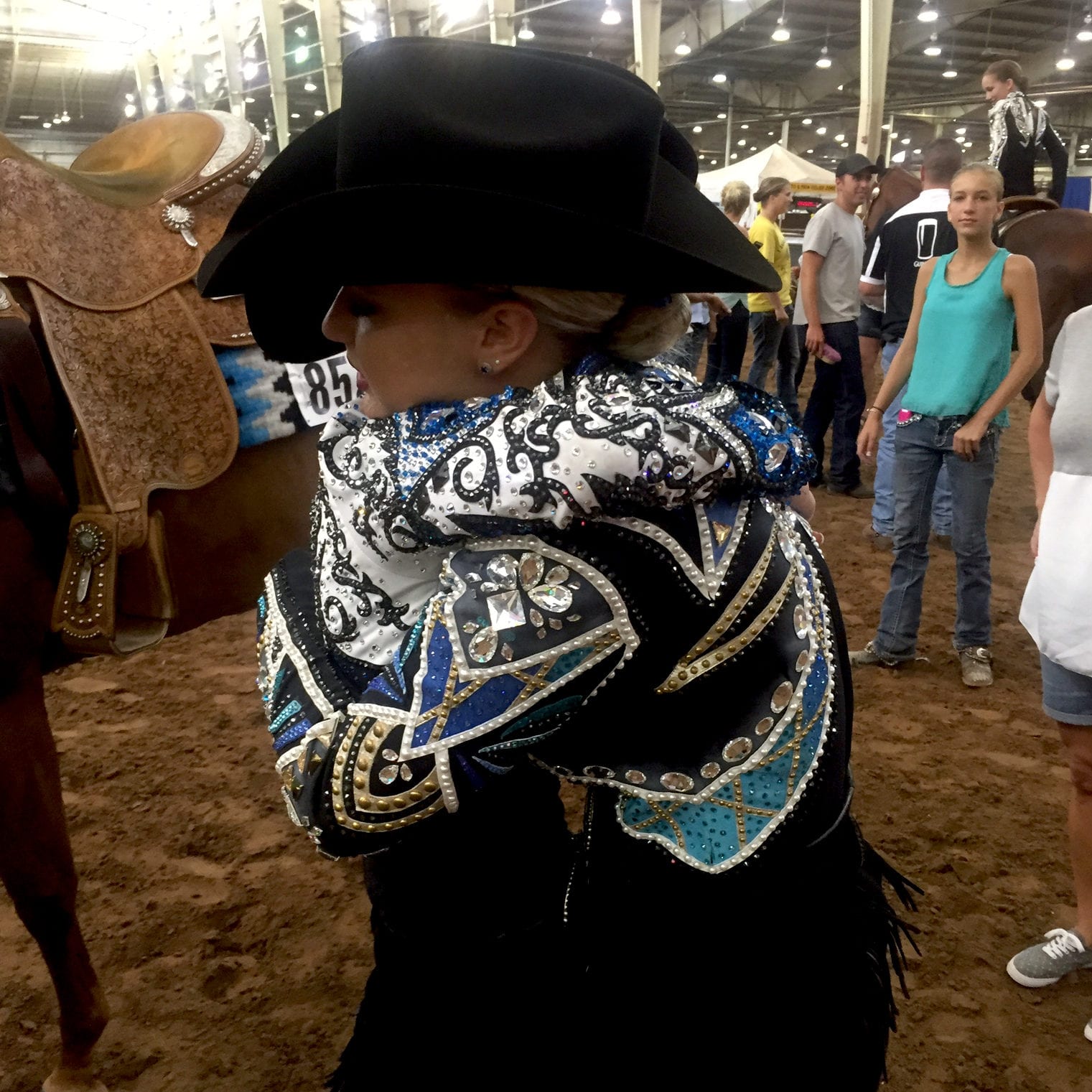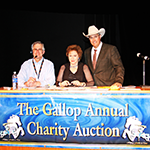Sportsmanship is not an act, it is an action. As a duty to yourself, the industry, and others around you, practicing good sportsmanship (even when it’s difficult) creates a positive environment where people want to return. Appreciating your competition and winning and/or losing graciously are just the beginning of carrying out your role as good sportsmen and women.
“There is value in any experience that exercises those ethical restraints collectively called sportsmanship,” Aldo Leopold, a famous American author and scientist once said.
Young or old, the value in treating others with respect, radiating positivity, and holding a composed attitude never goes out of style. In the world of equestrian competition, there need to be leaders in such movements.
Names and reputation mean something in this sport, and you can be remembered for right or wrong. You make your name, and it’s reputation, but people associate you with what they see. It’s up to you to choose. Be the reminder to others that a positive outlook on life events gets you farther.
Appreciate Your Competition
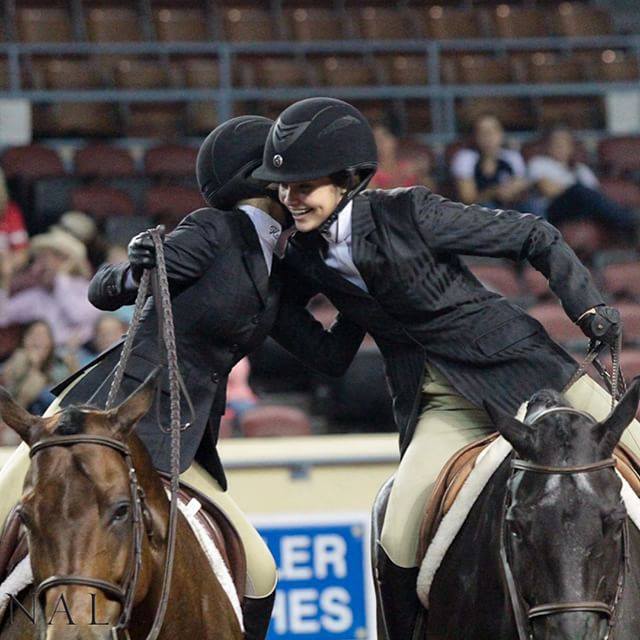 An athlete who doesn’t understand the meaning of competition cannot fully appreciate what it can do on a personal level. Showing horses in general terms is an individual sport. We work with just our horse and everyone else in the arena is our competition.
An athlete who doesn’t understand the meaning of competition cannot fully appreciate what it can do on a personal level. Showing horses in general terms is an individual sport. We work with just our horse and everyone else in the arena is our competition.
When you are preparing for a horse show, you usually have a good idea of who you will be competing against if you have been showing a certain circuit for some time. You learn what others are good at, and you can use that to push yourself.
It’s important to remember that there will always be someone better than you, and that’s nothing to fear. There will always be people willing to sacrifice more than you. There will always be people willing to spend more money than you. This kind of competition should make you want to set new goals. If your competition was at the same level as you or below, you would have no reason to better yourself.
For this, you should appreciate those you compete against. They challenge your skills and make winning difficult. When you do win, tip your hat to your competition, they helped you get there. They helped you find the best version of you, and polish your skills. Knowing their abilities helped you refine your own.
The recognition and appreciation of competitors is a large portion of sportsmanship. Appreciating their talent means you also respect the work they do.
Win and Lose Graciously
We all want to win, but there will be more times that we lose instead. That’s competition; that’s the challenge we all face.
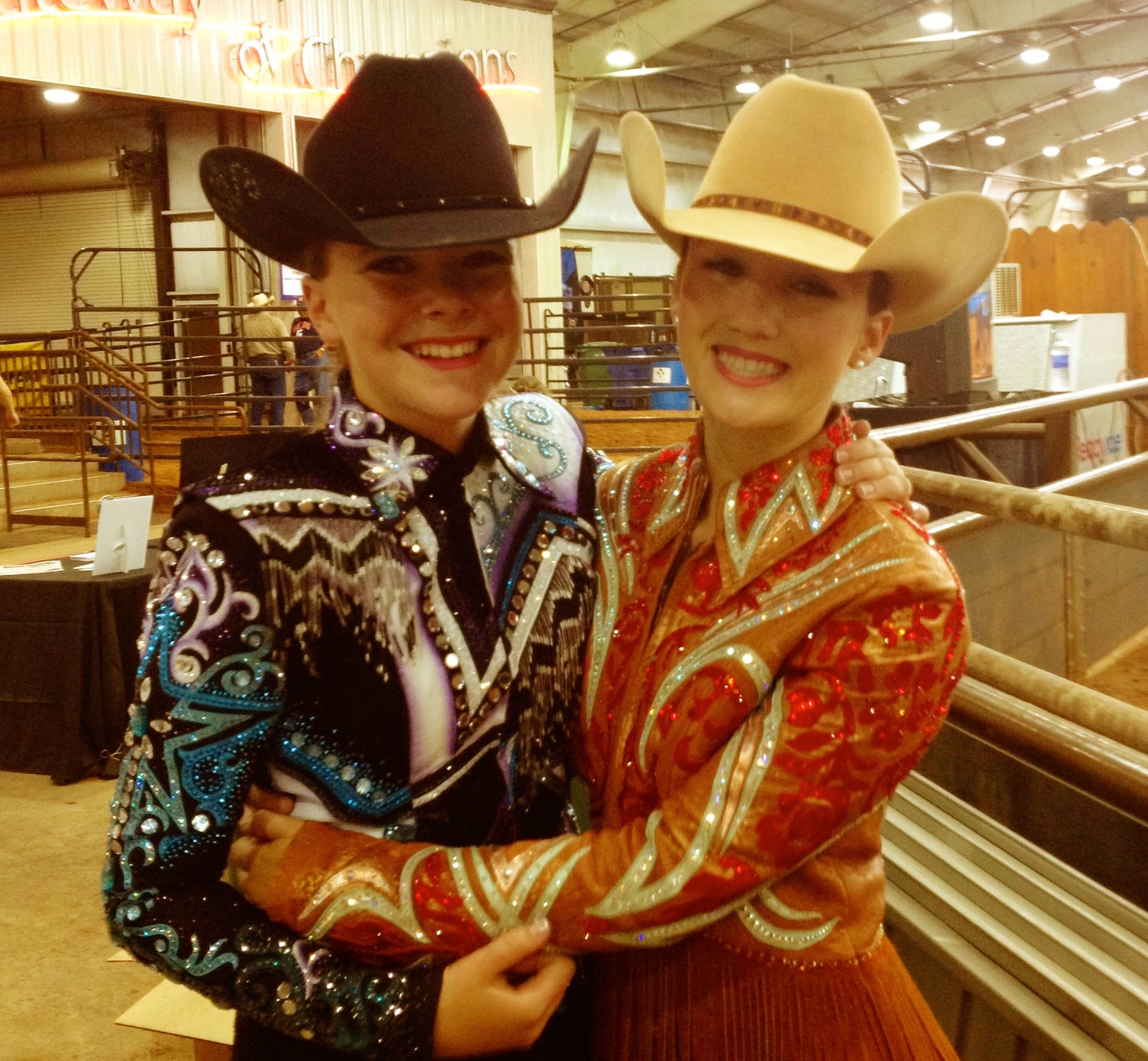 High expectations are acceptable, but setting realistic expectations on a personal level is different than anticipating wins. Someone that exhibits good sportsmanship can win with a humble attitude and lose with a positive one.
High expectations are acceptable, but setting realistic expectations on a personal level is different than anticipating wins. Someone that exhibits good sportsmanship can win with a humble attitude and lose with a positive one.
The people I remember the most at horse shows are the ones that I see cheering on their fellow competitors. Every one of us is there in hopes of success, but the way you win and lose says the most about you. Disappointment is never easy to handle, nor is it easy to be happy for fellow competitors as they take titles you wanted just as much.
Sometimes being a good sport is a simple smile and “congratulations” to the winner, or even to someone that you know has made progress with their horse.
If you were in that position you would appreciate someone taking the time to show they are happy for your accomplishment.
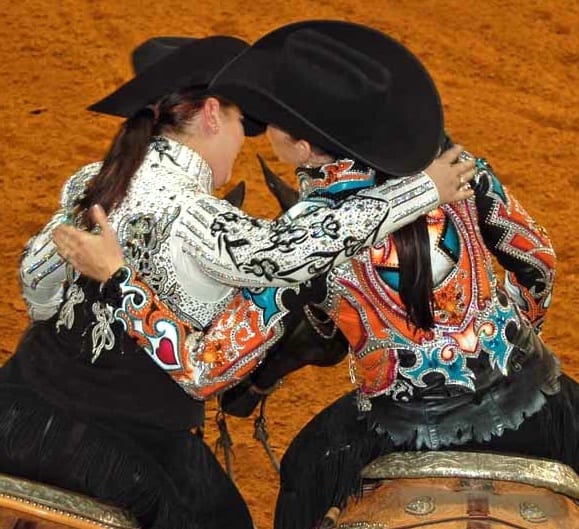 Feeling pride in a win is welcomed after the hard work and dedication that went into preparation, but the bad sportsmanship that is talked about after a horse show usually reflects the two extremes: gloating after winning and/or an exuberant display of disappointment after losing.
Feeling pride in a win is welcomed after the hard work and dedication that went into preparation, but the bad sportsmanship that is talked about after a horse show usually reflects the two extremes: gloating after winning and/or an exuberant display of disappointment after losing.
The gloaters expect too much, and unfortunately are sometimes the first to express the disappointment because things didn’t work out in their favor.
We have all seen tears of disappointment before.
Most of us have been there.
I vividly remember waiting for World Show callbacks with my fingers crossed, only to hear the announcer pass my number. I remember at that time it felt like my dreams shattered; I remember looking around me at the kids jumping for joy and others with the same tears in their eyes as me.
That’s when I learned some of life’s best lessons. Things won’t always work out in your favor, but you gained the experience of a lifetime. In time, you figure out that the adventures that led to each chance at a trophy or ribbon are what matters most. They made you better, more real and were a test.
The strongest ones didn’t avoid the tears, they just wiped them away and said, “Next year.” Then they watched the finals to see what they could learn and applauded the winners. In a sense, the ones watching from outside the arena won something too…acceptance of what they can’t control and motivation for the years to come.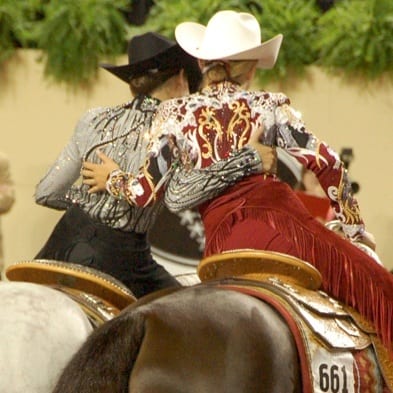
That’s sportsmanship.
As for the winners, they have been left sitting there too. They had bad shows and bad runs…but they never quit. You can’t get to the top without using the pain of your past failure motivate you. In the end, these people are thankful for those hardships and proud that they worked past them.
That’s sportsmanship.
National Recognition
Some national organizations choose to recognize an exhibitor with a sportsmanship award to both give credit to a deserving individual and encourage the practice of good sportsmanship at shows. At the 2016 AjPHA World Show, Amanda Nelson was awarded the Sportsmanship Award. The award was voted on by anonymous judges and arena staff.
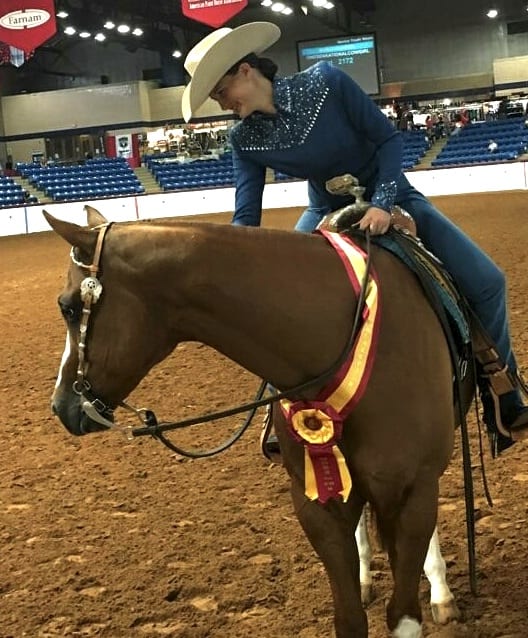 Amanda (pictured right) says, that, “Receiving the Robyn Hanna Sportsmanship Award (at the APHA Youth World Show) was a huge honor. When they said my name I walked down to the arena with tears in my eyes. I’m very glad people around the show noticed that I always try my best to be friendly and kind to everyone around me.”
Amanda (pictured right) says, that, “Receiving the Robyn Hanna Sportsmanship Award (at the APHA Youth World Show) was a huge honor. When they said my name I walked down to the arena with tears in my eyes. I’m very glad people around the show noticed that I always try my best to be friendly and kind to everyone around me.”
Even an award winning sportsperson admits that it’s not always easy, though, but at sixteen years old Amanda has it pretty well figured out.
“Being happy for the one that won can be difficult; it’s easy to be sad or mad about how a class went, but I just remember how fortunate I am to be showing my horse. If I have a bad run, it gives me something to work on at home.”
The AjPHA World Champion also mentioned that “Having good sportsmanship has allowed me to gain many new friends and to enjoy showing even more. When I win I am thrilled, but if I don’t I’m still happy because I love being on a horse doing what I love and being surrounded by people that share the same interest.”
Summary
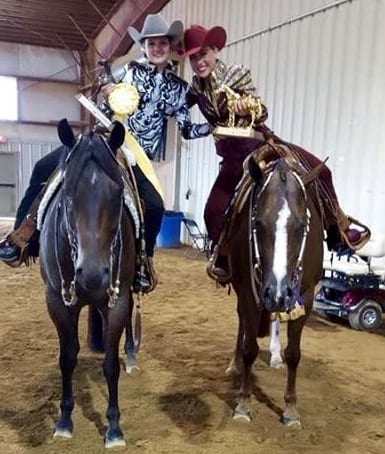 As we continue on into the world show season, I encourage you to think about the exhibitors around you. They all have their stories, advantages and disadvantages, hardships, and personal successes – just like you. You meet on common ground to compete for the coveted gold trophies and neck ribbons, but don’t value those more than the memories you make.
As we continue on into the world show season, I encourage you to think about the exhibitors around you. They all have their stories, advantages and disadvantages, hardships, and personal successes – just like you. You meet on common ground to compete for the coveted gold trophies and neck ribbons, but don’t value those more than the memories you make.
There are always many things to consider when it comes to good sportsmanship, and reputation is one. Reputations function much like trust: they are more easily broken than built, but each time you exhibit good sportsmanship someone will notice. It may be just one person that does, but that’s one more person that has been touched by sportsmanship than before. Hopefully, that person passes it on.
 You are not just representing yourself at horse shows. There is usually a team of people behind you including your parents, trainer, and barn depending on your situation. You are put on a horse and they trust that you will represent them well. No one else can control your every move or the decisions you make. Do not damage the respect they have given you, or others around you. People remember what they see.
You are not just representing yourself at horse shows. There is usually a team of people behind you including your parents, trainer, and barn depending on your situation. You are put on a horse and they trust that you will represent them well. No one else can control your every move or the decisions you make. Do not damage the respect they have given you, or others around you. People remember what they see.
Sportsmanship isn’t just the reason we make friends, it’s the reason we keep them. It’s the reason we come back and show with certain associations or groups. It’s the reason we believe in the good this sport can do. Parents bring their young children to show to teach them, remember you are what they see.
People will learn one of two things from you: that they want to be like you, or they don’t. Don’t be the person everyone wants to be based on wins, be the person that shows others that you can smile even when you don’t out of respect for others and respect for the work you put into this sport.
 None of us are perfect, and we don’t always have control of the things happening around us, but our practice of sportsmanship is uniquely our own. It’s made up of the decisions we make, and the heart we have for fellow exhibitors. We are all the same somewhere within. If we weren’t, we wouldn’t pour our soul into the equestrian sport.
None of us are perfect, and we don’t always have control of the things happening around us, but our practice of sportsmanship is uniquely our own. It’s made up of the decisions we make, and the heart we have for fellow exhibitors. We are all the same somewhere within. If we weren’t, we wouldn’t pour our soul into the equestrian sport.
Show fairly, smile, be courteous and helpful, be mature and understanding, say ‘good job,’ laugh and then learn from your mistakes, and when there are tears…wipe them away with a more motivated heart than you had before. Be a role model. Be a sportsperson.


